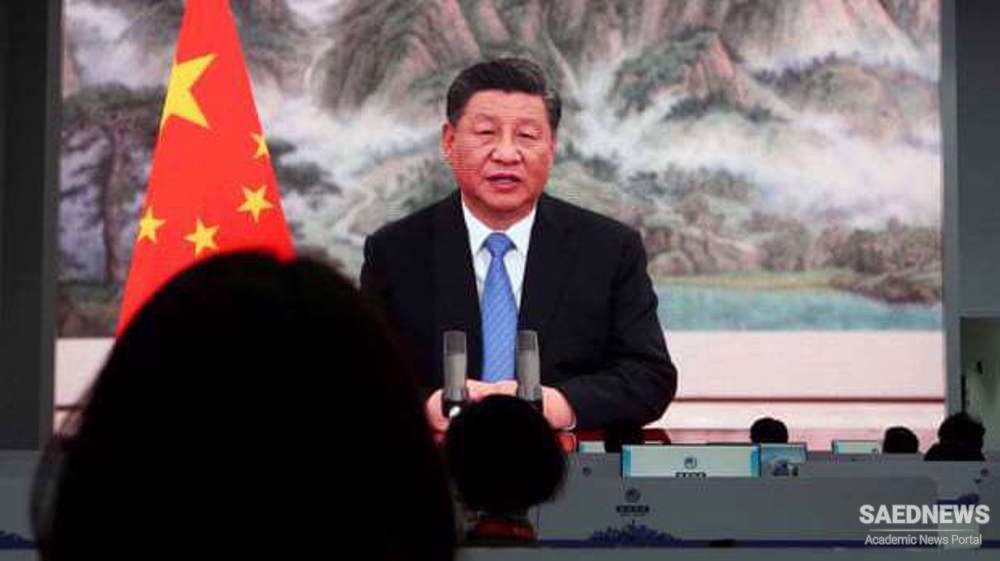Beijing, SAEDNEWS: Xi made the remarks at a virtual business conference on the sidelines of the Asia-Pacific Economic Cooperation (APEC) summit hosted by New Zealand on Thursday, saying the region should "be forward-looking, move ahead and reject practices of discrimination and exclusion of others."
"Attempts to draw ideological lines or form small circles on geopolitical grounds are bound to fail," he said, adding, "The Asia-Pacific region cannot and should not relapse into the confrontation and division of the Cold War era."
Xi's remarks were an apparent reference to the US-led Indo-Pacific alliances — AUKUS and Quad — to blunt what Washington and its regional allies see as China's growing coercive economic and military influence.
The Chinese president further called for a joint effort to make COVID-19 vaccines more accessible to developing nations to close the "immunization gap" and emerge from the shadow of the pandemic and achieve steady economic recovery at an early date.
"We should translate the consensus that vaccines are a global public good into concrete actions to ensure their fair and equitable distribution," he said.
Xi's comments came hours after China and the United States announced a surprise pact to boost cooperation on climate change at the United Nations Climate Change Conference (COP26) in Glasgow.
The Chinese leader did not mention the US deal directly but said "all of us can embark on a path of green, low-carbon sustainable development."
"Together, we can usher in a future of green development," he said. "China will stay committed to promoting win-win cooperation and contribute to the economic development of the Asia-Pacific region."
However, while China and the US have identified climate as a key area for potential cooperation, tensions have been soaring between the two countries over Taipei.
On Tuesday, China conducted a "combat readiness patrol" near the Taiwan Strait following a visit to Taipei by members of the US Congress, which sparked immediate condemnation from Beijing. China said the drills were aimed at the "seriously wrong" words and actions of "relevant countries" on the Taipei issue and the activities of the so-called "independence" forces on the self-ruled island.
US secretary of state Antony Blinken said on Wednesday that Washington would ensure Taipei can defend itself to avoid anyone "trying to disrupt the status quo by force."
China has sovereignty over Chinese Taipei, and under the "One China" policy, almost all world countries recognize that sovereignty. The US, too, recognizes Chinese sovereignty over the island but has long courted Taipei in an attempt to unnerve Beijing.
The latest development comes as several US media outlets have reported that Xi and his US counterpart, President Joe Biden, will hold a virtual summit as early as next week.
Combative US diplomatic exchanges with China early in the Biden administration has unnerved allies, and US officials believe direct engagement with Xi is the best way to prevent the relationship between the world's two biggest economies from spiraling toward conflict.
The US-China relations have grown increasingly tense in recent years, with the two largest economies of the world clashing over a range of issues, including trade, Chinese Taipei, Hong Kong, military activities in the South China Sea, and the origins of the coronavirus (Source: IRNA).


 China’s President Urges Boost to Strategic Partnership with Iran
China’s President Urges Boost to Strategic Partnership with Iran














































